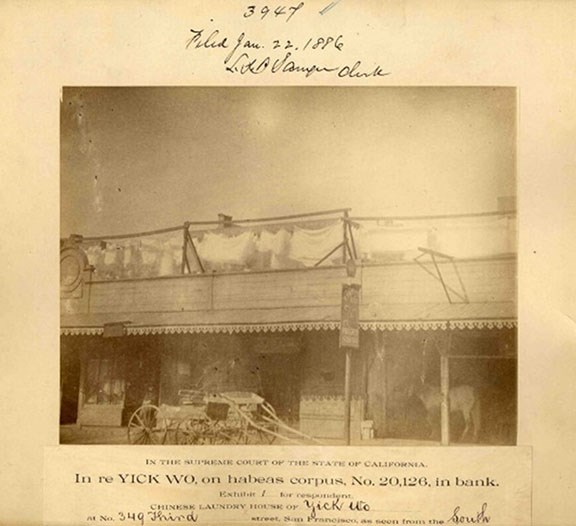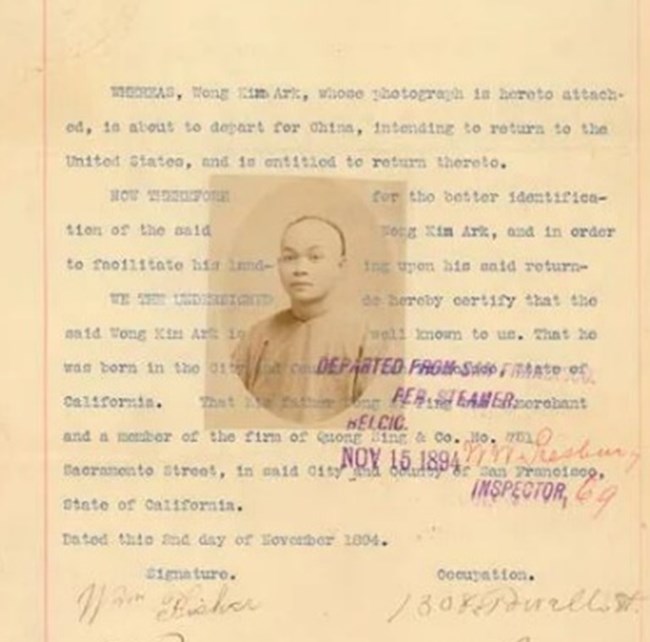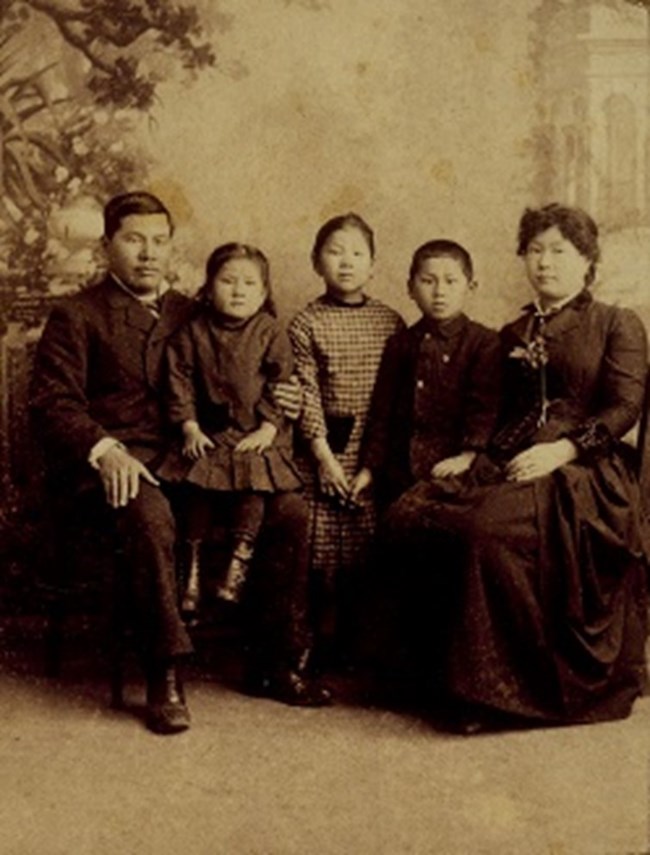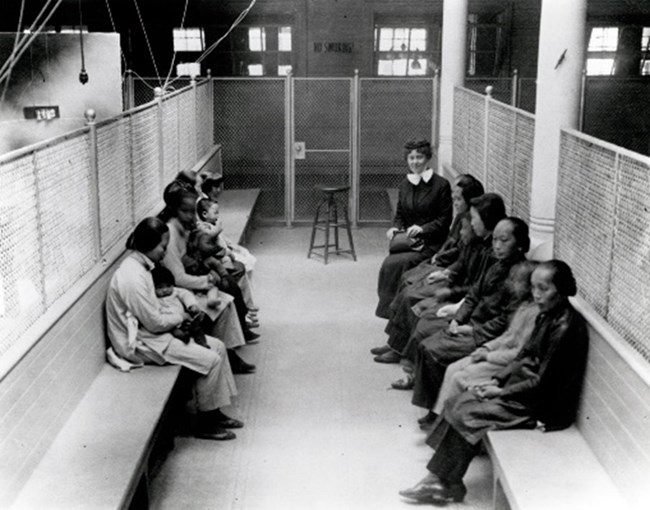Last updated: September 4, 2024
Article
Chinese Americans Use the Legal System to Fight Back
Some pivotal U.S. Supreme Court cases include:

Image courtesy of Repository US National Archives and Records Administration
Yick Wo v. Hopkins
Yick Wo came to the United States from China in 1861. In 1864, he set up a laundry business at 349 Third Street in San Francisco. He maintained a licensed laundry in San Francisco for at least twenty-two years before he was imprisoned for ignoring a San Francisco supervisors' ordinance in 1885 that required permits for laundry businesses in San Francisco that were not in brick or stone buildings.Nick Wo’s case was heard by the California Supreme Court and then the U.S. Supreme Court in 1886. Yick Wo v. Hopkins became a landmark case in which the U.S. Supreme Court ruled that a San Francisco law was unconstitutional because the permits were preferentially denied to Chinese laundries. The Court held that the law violated the Equal Protection Clause of the Fourteenth Amendment, which requires that laws be applied equally to all citizens and not be selectively enforced based on race or nationality. This decision established the principle that the Fourteenth Amendment protects individuals from discriminatory laws and actions by government authorities.
For more information you can read this article in the Michigan Journal of Race and Law.

National Archives
United States v. Wong Kim Ark
Wong Kim Ark was born in San Francisco in 1873 to Chinese parents who were legally residing in the United States. He was denied re-entry into the country after a trip abroad on the grounds that he was not a U.S. citizen. Wong sued the United States for citizenship by birth, leading to the United States v. Wong Kim Ark case that was heard by the U.S. Supreme Court in 1898. The Supreme Court ruled that under the Fourteenth Amendment, which grants citizenship to all persons born or naturalized in the United States, Wong Kim Ark was a U.S. citizen by birthright. This case affirmed birthright citizenship and is cited in many subsequent citizenship and immigration cases.
For more information you can read this article on the Cornell Law School website.

Public domain.
Tape v. Hurley
Chinese Americans played a leading role in the battle for equality in education. Prior to the Tape v. Hurley case of 1885, children of Chinese descent were not allowed in Francisco public schools. In Tape v. Hurley, the California Supreme Court ordered San Francisco public schools to admit Chinese American children. In response, California established separate “Chinese” schools. This segregation doctrine of “separate but equal” schools lasted in the U.S. until 1954, when it was finally struck down by the U.S. Supreme Court in Brown v. Board of Education of Topeka.
For more information, visit the Asian American Legal Foundation site.

Library of Congress 1910
Chy Lung v. Freeman
In the Chy Lung v. Freeman case of 1875, the U.S. Supreme Court sided with twenty-two women who had sailed from China to San Francisco, deciding that only U.S. Congress, not individual states, had the power to regulate immigration. Because the women traveled alone, the California Commissioner of Immigration had determined that they were “lewd and debauched women” (prostitutes). They were held on a $500 bond until the U.S. Supreme Court ordered their release, declaring that only a federal immigration authority had the power to determine the women’s status.
For more information visit this page on the University of Texas at Austin site.
